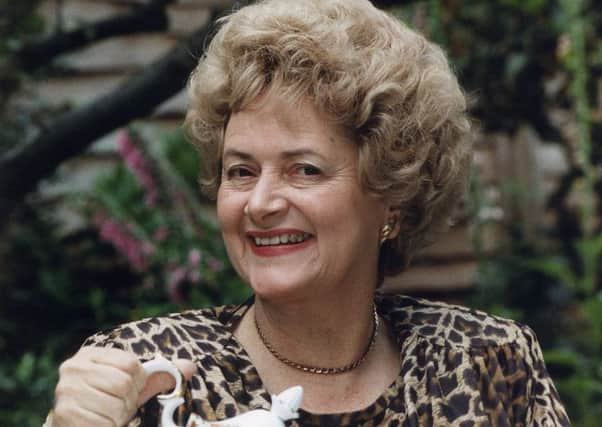Obituary: Cynthia Payne, brothel-keeper


With her bright smile, extravagantly coiffed hair and south London accent Cynthia Payne became a popular figure in the media. She was widely known as Madame Cyn and gained national celebratory when her brothel in Streatham, south London, was raided by the police and closed in 1978. What added a touch of extra spice to the case was that an afternoon sex party was in progress with men “of a certain age” paying for the pleasures on offer with luncheon vouchers.
As a result, Payne became a household name and went on to be the subject of books and films – the most famous, Personal Services, with Julie Walters as Payne.
Advertisement
Hide AdAdvertisement
Hide AdIn her later years Payne achieved a certain respectability and had a career as an after-dinner speaker. She was larger than life and, as one commentator wrote: “What you saw is what you got.”
With typical flourish Jeffrey Bernard in The Spectator declared her “the greatest Englishwoman since Boadicea”.
Payne was a delightful eccentric who cunningly made the officials reconsider the laws regarding prostitution, brothels and the whole sex industry. When her case came to the courts in 1980 she was sentenced to 18 months in Holloway for running a brothel. That was reduced to six months.
She stuck to her opinions regarding the antiquated laws on prostitution and on her release resumed her party- giving but was visited again by the police in 1986.
In fact, Payne made four court appearances over some 20 years and on the last occasion in 1978 there was a public outcry and questions were asked in the House (led by Tony Benn) about the severity of her sentence.
Payne was adamant that the laws should be changed and was a candidate for parliament on two occasions: in 1988 she stood in the Kensington and Chelsea by-election for the Payne and Pleasure Party, winning 400 votes.
And in 1992 she stood at the general election and was a candidate in her local patch in Streatham – standing for the Rainbow Dream Ticket.
Payne never lost her sense of humour and wrote that for months after her arrest “there were queues of middle-aged gentlemen waiting to exchange their luncheon vouchers for food, drink, friendly chat, striptease shows, and a trip upstairs with the girl of their choice. I was considered to be the best hostess in London.”
Advertisement
Hide AdAdvertisement
Hide AdCynthia Payne was the daughter of a hairdresser who worked on cruise liners. Cynthia was expelled from school for being a bad influence and didn’t remain in any job or college for long. After some erratic behaviour and several casual affairs she was disowned by her father.
In 1954 she went to London and worked as a waitress and rented a few small flats to local prostitutes. She soon realised the lucrative scene which she had hit upon and was not above, it is alleged, providing “services”herself.
In the early 1970s Payne opened her own brothel in Streatham and soon moved to larger premises.
The rules of the house were signed by “Madam Baloney” and forbade sex in the bathroom. In the kitchen there was a sign, which dramatically declared: “My house is clean enough to be healthy… and dirty enough to be happy.”
But the public rooms in the brothel were conservative and rather refined. There were clean net curtains, some rather uncomfortable sofas and chairs, starched antimacassars and formal tea cups and saucers.
The ritual had to be strictly observed – gentlemen under 40 were barred (“all Jack-the-lads boasting about their prowess”) and there were discounts for pensioners.
After sex, the working girls redeemed the voucher for £8 from Payne. While she never worried about the extreme or abnormal requests from her clients Payne preserved a healthy relationship with her girls.
At the end of the afternoon shift Payne would serve them with a healthy tea comprising a poached egg on toast and a hot cup of tea.
Advertisement
Hide AdAdvertisement
Hide AdBy the 1990s Payne was a celeb in her own right and worked on behalf of various charities. In 1996, for example, she (resplendent in a grand tartan outfit) and the comedians Lenny Henry and James Dreyfus in brilliant red noses launched Comic Relief clutching some specially manufactured Comic Relief ice cream.
The Tory MP for Kinross and Western Perthshire, Nicholas Fairbairn, wrote that the Payne affair had become a farce. “The police should not waste their time pursuing a jokey English lady who has made us laugh during a cold winter.”
Payne brought a little bright sunshine to many people’s lives and did it with a large dose of dash and flair. She was a one-off and enjoyed a huge success with her one-woman show at the Edinburgh Fringe in 1992. The house was packed every night.
Cynthia Payne is survived by a son.